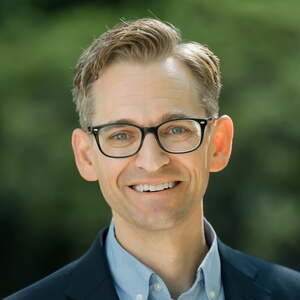C.S. Lewis died 50 years ago this November, and if this is the first time youâve been made aware of that fact, it probably wonât be the last. The coming anniversary of Lewisâ death means that weâre all likely to see his name more frequently than usual in the months ahead â which, if youâre like most American evangelicals, is already quite frequently.
And for good reason, of course. Lewis, who has been called the âpatron saint of evangelicalsâ (despite not aligning entirely with evangelical doctrine), was among the most versatile and influential writers of the 20th century â Christian or otherwise. In his imaginative novels, he transported us to such worlds as Narnia and Perelandra. In his nonfiction books, he defended mere Christianity, warned of the abolition of man and explored the problem of pain. In his literary criticism, his essays, his poetry and his thoughtful personal letters, he modeled faith, scholarship and creativity. And in all of his writings, his ability to communicate significant truths in pithy, unexpected ways left us with hundreds of well-worn quotes that still consistently find their way into sermons, articles and Twitter feeds.
Serendipitously enough, the coming Lewis anniversary coincides nicely with the arrival of one of the worldâs foremost Lewis experts, Christopher Mitchell, to Biolaâs faculty â giving Biola Magazine the perfect opportunity to look at Lewisâ legacy. Mitchell, the former director of the Marion E. Wade Center at Wheaton College and the newest professor in Biolaâs Torrey Honors Institute, graciously agreed to write the lead article in this issueâs Lewis-themed cover package, in which he examines the qualities that made the author such a remarkable Christian communicator.
Weâre equally fortunate to have a contribution from another leading Lewis expert, alumnus Jerry Root, a Wheaton professor who teaches an excellent class on Lewisâ theology at Biola each summer. Root gives us four explanations for why Lewis has remained so popular over the decades, and also curates some of his all-time favorite Lewis quotes as a bonus. Weâre also thankful to have alumnus Matthew Lee Anderson offer his first-person account of what itâs like to live at Lewisâ Oxford home, The Kilns, and to have several Biola faculty members reflect on their favorite Lewis books. (Some ideas for your summer reading list, perhaps?)
In all this, we hope not merely to honor Lewis, but to learn from his example as someone who took seriously and communicated winsomely the truth that Jesus is Lord of all. As he famously wrote in âIs Theology Poetry?â: âI believe in Christianity as I believe that the sun has risen, not only because I see it, but because by it I see everything else.â
 șÚĘźÊÓÆ”
șÚĘźÊÓÆ”
.jpg)

